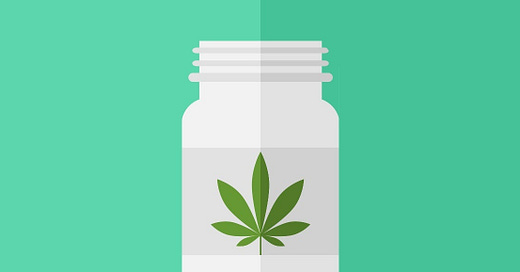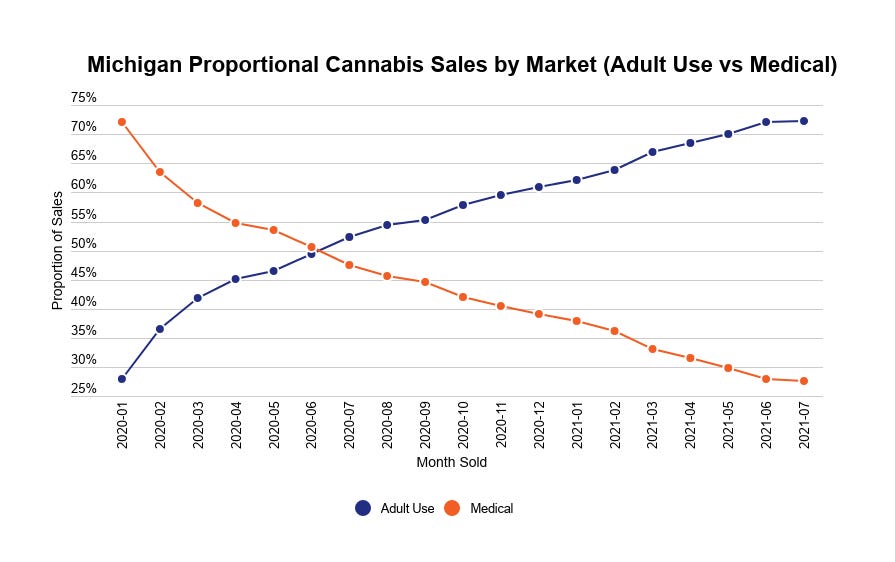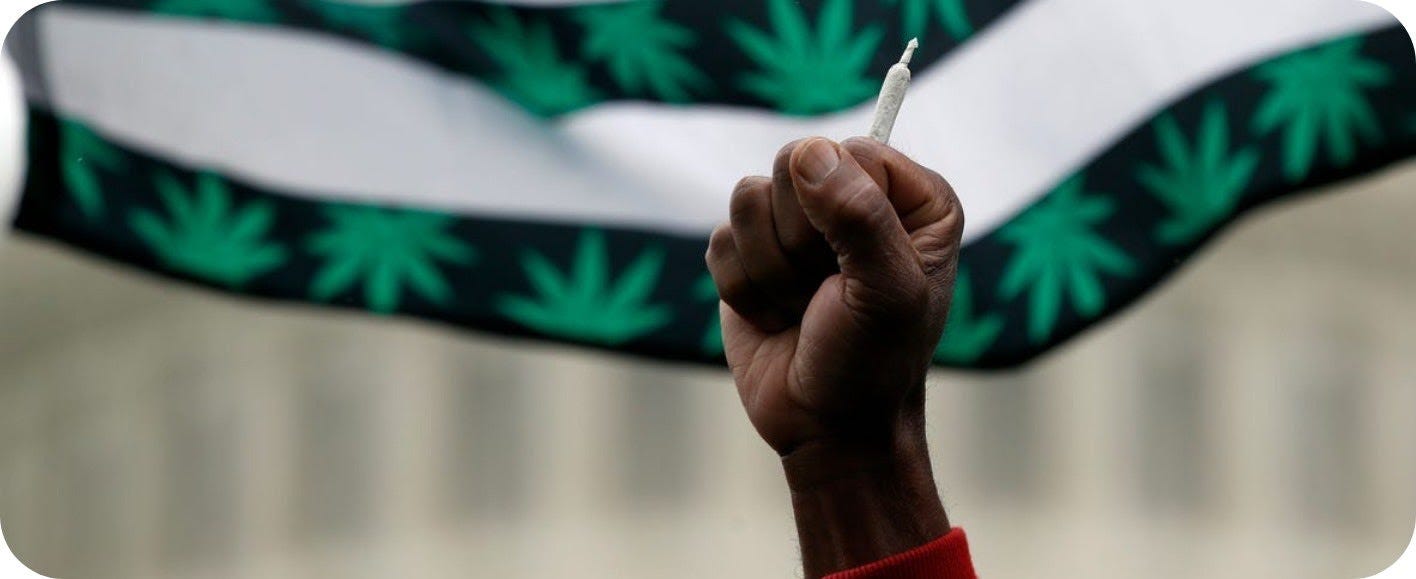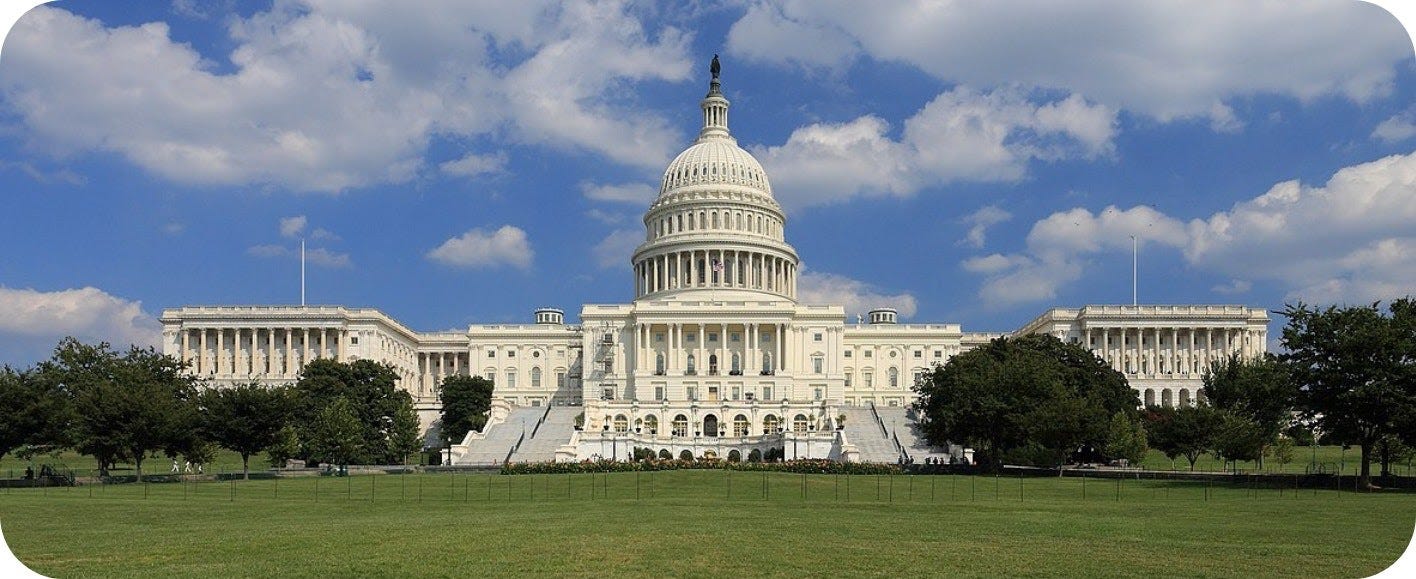Declining Medical Cannabis Sales? 💡
What happens in regions when they legalize adult-use cannabis sales...
In Today’s Issue:
→ Medical vs Adult Use. 💰
→ Criminalizing Cannabis. ❌
→ The Impact Of Legalization. 💡
Medical-Use vs Adult-Use Cannabis
New data examines what happens when regions allow adult-use sales…
A common concern from conservative politicians is that legalizing cannabis for medical purposes results in a greater acceptance of cannabis which in turn leads to a further loosening of the laws.
Truth be told, this perspective is a very common pattern we are now seeing in the cannabis industry today — especially in North America.
The pattern…
Once a region has gained sufficient support to legalize cannabis for medical-use, the next logical step is to do so for adult-use purposes.
In California — the very first state to legalize medical cannabis, this process took 20 years to complete.
We are also seeing a compression of this timeline with Illinois having legalized medical cannabis in 2013 and then adult-use sales in 2019.
Better yet, earlier this year South Dakota became the first state to legalize cannabis for both medical and adult-use purposes on the same day.
What happens when….
Per Headset, when a region legalizes cannabis for the adult-use market — the region experiences very significant growth in total cannabis sales.
→ Cannabis sales in Illinois have increased more than 3x from $39.2M when they began in January 2020 to $127.8M in July 2021.
→ Cannabis sales in Michigan have increased more than 10x from $9.8M in January 2020 to $115.3M in July 2021.
In Michigan, medical sales grew some 75% from January 2020 to July 2021.
During this time, the percentage of cannabis products purchased from the medical market has been crashing relative to adult-use sales.
This same trend has been impacting the cannabis industry in Illinois with medical sales steadily declining relative to adult-use sales, reaching an all-time low of less than 21% in July 2021.
The good news is that this isn’t a winner takes all market with many medical patients continuing to source products from the medical market.
Looking at two of the most mature cannabis markets in the world — Colorado & Oregon, medical cannabis sales as a percentage of overall sales declined significantly in the first five years, however, they have since leveled out.
→ Oregon's medical sales have stayed between 8-12% of total sales each month for the last 18 months.
→ Colorado's medical cannabis sales have stayed between 18-20% for the past year.
Our Take
The pattern we are seeing whereby a region first implements a medical market, followed by an adult-use market makes perfect sense.
Cannabis being legalized for medical purposes recognizes the medical value of cannabis, and this paves the way for a much more honest conversation when it comes to commencing adult-use sales.
Washington Wants A Clean Slate
Having prevented dozens of people with criminal records from working in cannabis, Washington wants to right this wrong…
Having sought to suppress adults’ ability to access cannabis products for decades, on the 6th of December 2012, Washington became the first U.S. state to legalize cannabis for adult-use purposes.
A clear constraint…
This victory was hard-won, however, despite this progress issues remained.
When the prohibition of cannabis was in full effect it disproportionately impacted people of color.
Still, Washington thought it wise to prevent these people from working in cannabis.
Close to a decade later, law markers are finally seeking to address this issue with a new rule set to go into effect early next month that removes some of these restrictions.
The past vs the future…
For the past 9 years, having a criminal record could prevent someone from successfully obtaining a cannabis license.
Recent “misdemeanor convictions” also counted against applicants under the old rules.
Applicants could also be denied for any old misdemeanor or felony convictions they failed to disclose when applying.
As of the 2nd of October 2021, a serious felony conviction within the past 10 years will trigger an in-depth review of a person’s application.
That said, the rules no longer state that these people will be denied licenses.
Moving forward, one minor felony won’t be enough to hold up a person’s license application.
What the numbers say…
Today, roughly 1,800 licensed cannabis businesses operate in Washington.
Since the start of Washington’s legal cannabis market, 43 people have been denied cannabis business licenses due to their criminal history background check, however, 77% of those applicants were white.
Without having an abundance of resources there is said to be a widespread sentiment that people with criminal convictions were discouraged from ever applying for a cannabis license.
Per the Liquor and Cannabis Board in Washington, only 1% of the licensed cannabis cultivation and processing businesses in Washington are majority-owned by black people.
Even though close to 4% of the state’s overall population is black.
Making progress…
The good news is that Washington wants change.
In 2020, Washington lawmakers approved a social equity program that will award the 39 unused cannabis retail licenses to applicants from communities & neighborhoods disproportionately targeted by cannabis enforcement.
Last week, the task force approved recommendations, including proposing a formula to help determine who would qualify for the 39 licenses reserved for communities harmed by the war on drugs.
The task force also recommended that a portion of cannabis tax revenue go towards helping successful social equity applicants launch their businesses.
Lastly, they suggested making it easier for those applicants to find business locations by allowing them to operate closer to facilities such as transit centers, libraries, and arcades.
Our Take
Why would we seek to sideline those who possess the expertise to help grow the cannabis industry?
In order for the cannabis industry to become the best version of itself, we would do well to make it as easy as possible for those with expertise in cannabis to join the legal cannabis industry.
The Impact Of Federal Legalization?
Examining the potential impact of federally legalizing cannabis in the U.S…
As the federal legalization of cannabis looms in the U.S — what’s the potential impact of this reform for existing operators?
Per Politico two in three Americans now live in a state that has approved the sale of cannabis products for adult-use purposes.
Despite the fact that cannabis is only legal for all adults in 18 States and the District of Columbia.
The current efforts…
The Senate majority leader Chuck Schumer is in favor of making very significant changes when it comes to cannabis.
While social equity is a key area — they are also in favor of regulating the cannabis industry on a national level.
This would likely allow for interstate commerce.
Allowing brands to scale much faster with the current regulatory environment making it unnecessarily complex and expensive to build a cannabis brand with national distribution.
Cannabis farmers from the Emerald Triangle in California could suddenly ship their products anywhere in the country — including places where it’s more expressive to cultivate cannabis.
This presents a big opportunity as cannabis is currently being cultivated in many regions where it does not naturally grow well outdoors.
“If the [Schumer] bill is passed, with that current language there that really doesn't give the states the authority they need to keep their markets intact, then I think we see a race to the bottom,” Jeremy Unruh, vice president of regulatory and public affairs at PharmaCann said.
With Washington having residency requirements to receive a license, it will be interesting to see how these two systems can co-exist.
Looking forward
There has to be an alignment between the federal lawmakers and the states that have already proactively created an adult-use cannabis market.
Each with its own unique regulations.
This legislative change is inevitable, albeit the exact timeline remains unclear.
Our Take
Right now there are competing versions of what the immediate future will look like for cannabis in the U.S, and in the coming months, we will obtain clarity as to which version will succeed.
Either way, we will continue to see cannabis sales increasing as more states move faster than the federal government.
For more like this, subscribe to Four PM today to receive the next edition:
If you gained value from this edition of Four PM, share it with your favorite cannabis professionals. 🌎













